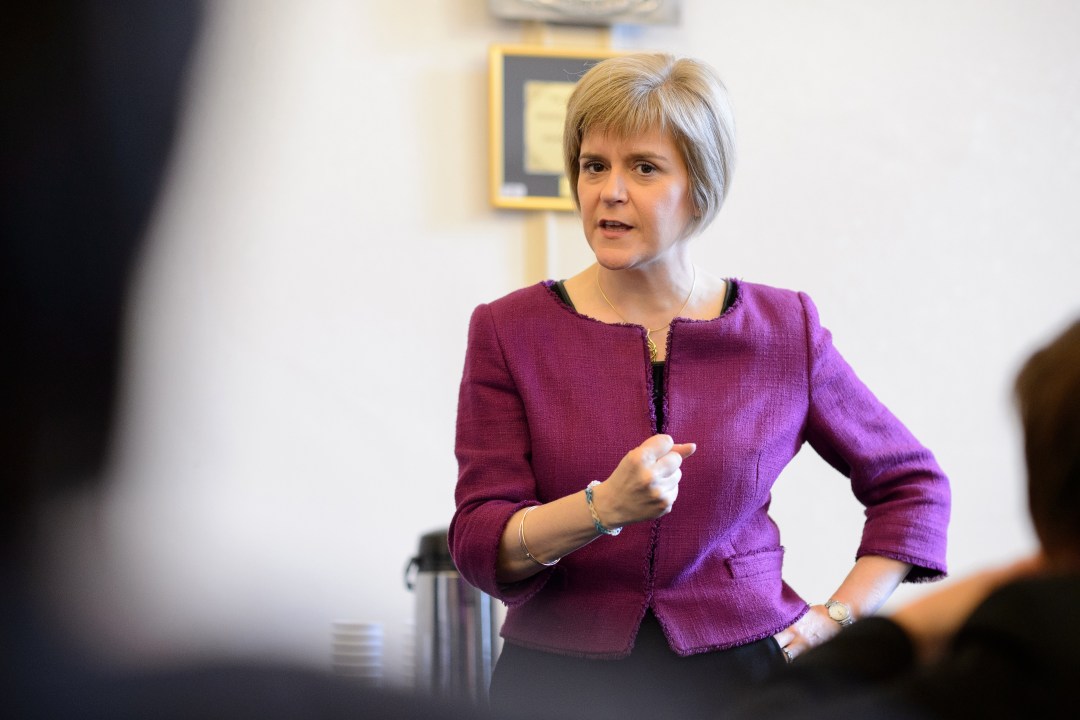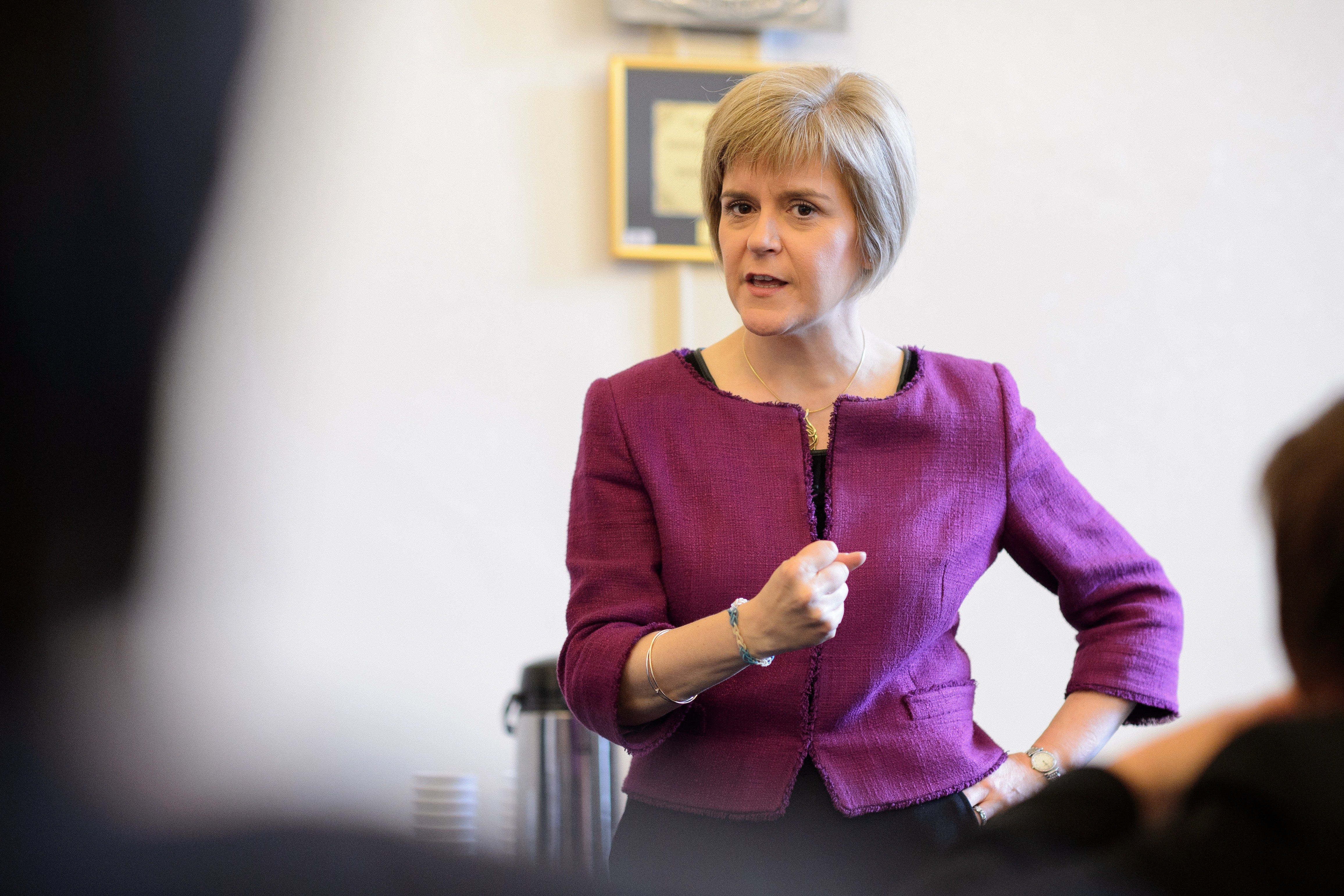No-one has died. No-one has been stabbed. Someone, I suppose, may have been punched. So let’s retain some sense of perspective as we consider and try to make sense of the last few days in Scotland. It is only day five. People deal with grief at different speeds.
So, pace Ms Kubler-Ross, it shouldn’t be a surprise that many Yes voters are still in Denial. Many others have made it to Anger. Some have got as far as Bargaining. Most are certainly still in Depression. Only a few have reached Acceptance.
True acceptance, I mean. There’s a lot of Yes we lost but if you look at it differently we kinda won. The settled, sovereign, will of the Scottish people is merely a flesh wound. In truth, Kubler-Ross’s phases are less clearly-defined stages than a maelstrom of raging emotions more than one of which may be felt at any given time.
I get it. I get that may Yes voters have still to come to terms with their disappointment. I understand that this will take time. Moving on, as they say, is not easy. Just as it would have been difficult – extremely difficult – for No voters to have confronted and come to terms with the dissolution of Britain. So I understand why some Yes voters still don’t really feel like speaking to their No-voting friends. That’s OK. It really is.
But it’s also time for Yes voters to appreciate they really did lose. More importantly, to appreciate that hundreds of thousands of No voters voted to preserve the Union freely and because that’s what they truly believed was in the best interests of Scotland and, indeed, Britain. They were not conned. They were not tricked. They were not bullied or bribed or coerced into voting No. They did so because they considered the options and made their own decision. They have not betrayed you; they have not betrayed their country.
Doubtless some voted No out of self-interest. Doubtless many others did so because they were unpersuaded by the arguments for independence. Some may have done so because they were afraid of the future independence might herald. Just as Yessers had many reasons to vote Yes, so there’s no unifying theory of No voting. Respecting the result means respecting the people who voted for it. Otherwise, you know, we won’t have much to talk about. We won’t even be able to talk about these things sensibly.
I spoke at a post-referendum debate in Glasgow last night which, like most events I go to, was full of folk who voted Yes. There was plenty of anger in the room, plenty of bruising. Plenty of bewilderment too. And that’s fine. As I say, these things are still raw. But it’s easy to be seduced by those that shout the loudest and to think they speak for the movement as a whole. They don’t. I was impressed by the number of Yes voters who, quietly, conceded that the game was up and wanted to talk about what would happen next.
I suspect Nicola Sturgeon knows this too. The question is whether she wants to work with other parties – and Westminster – or whether she’d prefer to wreck the next phase. I suspect the former is more likely to be the case. She’s not Alex Salmond. (It’s hard to imagine Sturgeon writing this kind of letter to a newspaper, for instance.)
It’s notable, for instance, that Sturgeon (and John Swinney) have rejected the idea, promulgated by Jim Sillars and Alex Salmond, that a separatist majority at the next Holyrood election would (or could) constitute a mandate for independence without having to go to the trouble of having another, potentially inconvenient, referendum. This seems wise, not least in terms of the SNP’s own electoral prospects. The rules have been settled and it’s too late to change them now. There’s every difference between what might work in theory and what’s achievable in practice.
There are SNP politicians – Marco Biagi is a good example – who understand this. The reported 80,000 zoomers – 5 per cent of Yes voters, assuming they’re all from Scotland – who have signed a petition calling for a recount of a “rigged” referendum do not.
That’s the problem with life in a faith-based community; you struggle to see or understand why anyone would think or want to live differently. The cocoon is a comfortable place; the real world is messier and more complicated and more difficult. Hard truths can be crushing.
No-one expects the SNP or even the wider Yes movement to disappear; all anyone asks is that they come to terms with the result and, frankly, cease all this buggering around. If a one vote majority for Yes would have been enough – and it would – then a 400,000 vote majority for No is enough too.
Because once we’d dealt with that we can begin the bigger task of improving things. Some of those improvements involve the constitution; many do not. Many already lie within Holyrood’s power. There are already things that can be done differently. I imagine I’ll disagree with many of the proposals put forward by this – or any other – Scottish government; I don’t agree that without independence Scotland cannot hope for self-improvement or better government.
So, come on, let’s do this.








Comments